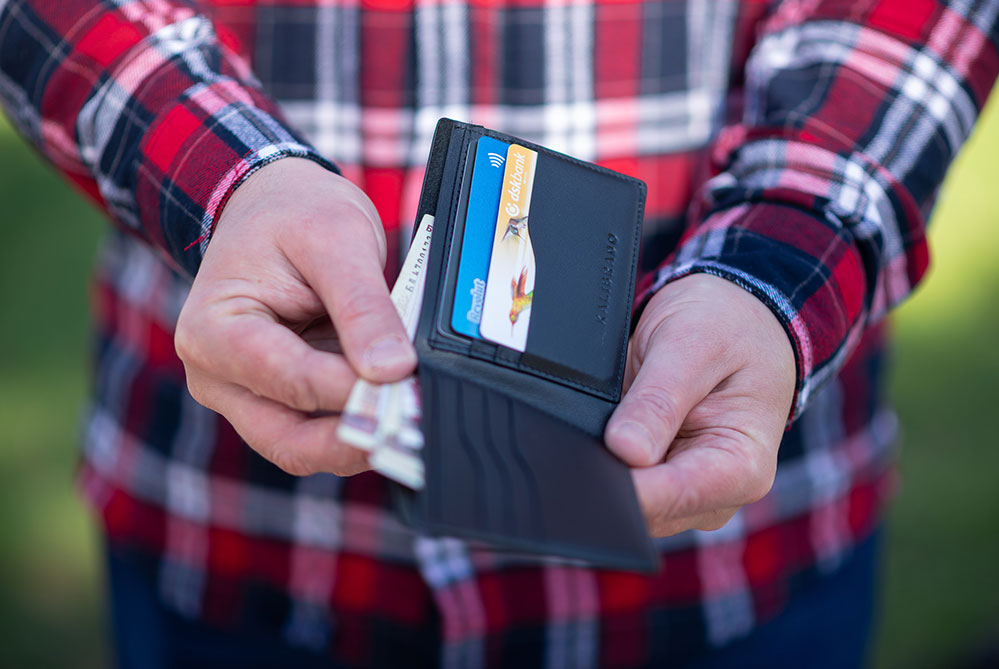8 tips on how to improve your credit score as an expat the UK

A really important element to your life in the UK is having a decent credit score – without it, everyday tasks can be really difficult. Unfortunately when you move to the UK, you’ll be starting from scratch, no matter how good your credit score was in your home country.
Here’s 8 tips you can do to help improve your score overtime so eventually, you don’t even have to worry about it.
1. Make sure you’re on the electoral roll
An easy tip is to make sure that you are on the electoral roll if you’re eligible to vote. This shows lenders that you are who you say you are by confirming your name and address. If you do move, it is important to make sure you update this information as quickly as possible.
As a side note, this document is typically great proof of address for various things (for instance, I’ve used this for a visa renewal before).
You may be surprised to know that you may be able to vote in certain types of elections – to vote in a local government election you must:
- be registered to vote
- be 18 or over
- be registered at an address in the area you want to vote in
- not be legally excluded from voting
You must also be one of the following:
- a British citizen
- an Irish or citizen EU
- a qualifying Commonwealth citizen
- a citizen of another country living in Scotland or Wales who has permission to enter or stay in the UK, or who does not need permission
It can be a little confusing, but even if you don’t end up voting, definitely register if you can.
2. Open a bank account
A big element to improving your credit score is having a bank account in the UK. However, having no credit history can make it difficult to open your first account. I have a video on my channel with details on how to open your first account if you need help, one piece of advice is to look at online banks like Monzo and Starling as they can sometimes be easier to get started with.
If you register with one of those banks, eventually you could always open an account with a High Street bank once you’ve improved your credit a bit and can be approved.
3. Receiving regular income
Make sure you find employment and have a regular income which you pay into your UK bank account. This shows lenders that you’re more likely to be able to pay back any debts. This takes time, but it does help.
The quicker you can find a job, the quicker your can start improving your credit score.
4. Set up and use a credit card
Using a credit card is a great way to increase your credit score, particularly if you show discipline by keeping well within your credit limit. Some credit cards (known as “credit builder” cards) are designed by credit card issuers with exactly this in mind. After living in the UK for about two years or so, I was approved for one of these cards. I use it a few times a month and pay it off immediately.
Do not overspend of forget to pay off your card. This will set you back. Make sure to use your card every so often and pay it off immediately.
5. Try small lines of credit
Things like mobile phone contracts and store cards are a good option to help improve your credit. They don’t tend to be quite so strict with their criteria and allow you to show that you can manage your finances well. However you may not be approved right away, but give it a few months at work, earning income and with a bank account and address – and you may be approved.
A mobile phone contract is technically a credit agreement. By making regular payments, you’re demonstrating your ability to repay debt, which is logged favourably on your credit report. You’ll need to keep on top of it though as late payments will hurt your credit score.
Both of these services allow you to improve your credit score, simply by logging existing payments you’d be making anyway.
6. Don’t over apply
Don’t apply over and over for credit if you keep getting turned down. Every time a creditor says no, a record is added to your credit report and if multiple unsuccessful applications are made, this will negatively impact your credit report.
If you want to continue applying for credit, space your applications out. If you’re rejected for something, leave about 3-6 months between applications.
7. Manage your household bills well
Setting up a direct debit can ensure that you are never late with a payment and make sure that you’re not causing any damage to your credit score.
Typically paying bills won’t drastically improve your score, but missed or late payments can hurt you. Make sure to stay on top of all your monthly bills, rent, council tax and subscriptions. It’s good practice to pay bills on time anyway.
If you need help, make sure to check out this post all about how to budget for life in the UK.
8. Make regular payments count
Ordinarily, rent payments and many everyday bills (such as Spotify and Netflix subscriptions) do not count towards your credit score. However a new program called Credit Ladder might be able to help. It allows you to share details of your rent payments with Experian and Equifax, and Experian Boost does the same for utility bills paid by a direct debit.
I haven’t used Credit Ladder before but I’ve heard a lot of good things about it, so definitely check it out to see if it’s right for you.


